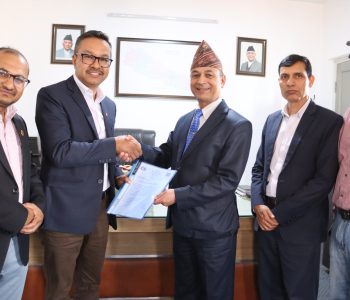Govt begins facilitating NT and ISPs for foreign currency allocation and equipment imports
Ncell , another major telecom operator, continues to face legal hurdles. Due to the lack of necessary facilitation from the government, Ncell has been unable to expand its services or improve quality.
KATHMANDU: The government has started actively facilitating telecom companies and Internet Service Providers (ISPs) that pay their dues by issuing recommendations for foreign currency allocation and equipment imports. This development follows the resolution of various disputes related to license fees in court, allowing the government to provide necessary support to telecom operators and ISPs.
The regulatory body, Nepal Telecommunications Authority (NTA) , is now assisting telecom companies like Nepal Telecom (NTC) after a favorable court ruling in its favor. Meanwhile, private operators such as Ncell and ISPs like WorldLink are still navigating legal challenges regarding frequency license fees and penalties.
Court Rulings and Regulatory Progress
In a significant development, the Patan High Court ruled in favor of Nepal Telecom (NTC), ordering relevant authorities not to collect additional frequency license fees or penalties prior to June 16, 2078 (June 30, 2021). Although the full verdict is yet to be issued, the court’s summary decision has already been communicated to the NTA. Following this, NTC has resumed receiving approvals for equipment imports and foreign currency allocations.
Sangeeta Pahadi Aryal, Managing Director of NTC, stated that the company has begun receiving necessary facilitation from the NTA for import licenses and other operational requirements. She emphasized that NTC’s service expansion efforts will now gain momentum.
However, Ncell , another major telecom operator, continues to face legal hurdles. A similar case filed by Ncell is still pending at the Supreme Court . Due to the lack of necessary facilitation from the government, Ncell has been unable to expand its services or improve quality.
Resolution for ISPs
The Supreme Court recently dismissed all cases filed by WorldLink , one of Nepal’s largest ISPs, against the government. Following this, ISPs have started paying their outstanding dues. For instance:
WorldLink paid Rs. 2.15 billion, including penalties, on October 30, 2080 (November 14, 2023).
Another ISP, Subisu , paid Rs. 313.8 million.
After clearing their dues, WorldLink received a new license, while Subisu’s license was renewed. However, despite paying their dues, some ISPs remain frustrated as they have not yet received approvals for equipment imports or foreign currency allocations. They accuse the NTA and the Ministry of Communication of delays.
Regulatory Stance
Director of NTA, Santosh Paudel , stated that service providers who have cleared their dues are now being provided with necessary approvals for equipment imports and foreign currency allocations. “We’ve started facilitating Nepal Telecom, WorldLink, and Subisu. Payments are being processed for everyone. Vianet hasn’t fully paid yet, but they’ve committed to settling their dues. Once all payments are cleared, we’ll facilitate them too,” Paudel explained.
He also noted that approvals are being issued based on different timelines for each company. Similarly, Gajendra Kumar Thakur, Joint Secretary at the Ministry of Communication, confirmed that there are no obstacles in facilitating service providers who have paid their dues. “Once payments are made, there’s no reason to withhold facilitation. The process is moving forward smoothly,” Thakur said.
Process for Approvals
To obtain approvals, service providers must first secure a recommendation letter from the NTA. Afterward, they must approach the Ministry of Communication, which then recommends foreign currency allocation to the Nepal Rastra Bank (NRB) .
“Payments have been made, and facilitation is no longer an issue. The process is underway, and the ministry won’t delay approvals once letters arrive from the NTA,” Thakur added.
Impact of Delays
For nearly a year, telecom operators like NTC and ISPs have faced significant delays in obtaining approvals for equipment imports and foreign currency allocations. This has hindered their ability to expand services and improve quality due to a lack of essential equipment. Additionally, the inability to access foreign currency has prevented them from paying for bandwidth, leading to service disruptions.
For example, in Baishakh 2080 (April-May 2023), Airtel cut off incoming bandwidth due to non-payment, causing nationwide internet outages.
Outstanding Dues
Currently, six ISPs collectively owe over Rs. 1 billion in unpaid dues. Under existing regulations, telecom service providers cannot import any equipment (radio or non-radio) without prior approval from the NTA. Similarly, foreign currency payments to international organizations under contractual agreements require mandatory NTA recommendations.












Facebook Comment